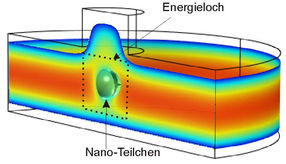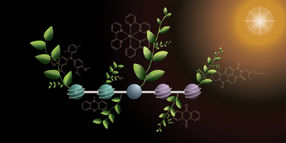Probing the nanoparticle: Predicting how nanoparticles will react in the human body
Advertisement
Researchers at North Carolina State University have developed a method for predicting the ways nanoparticles will interact with biological systems – including the human body. Their work could have implications for improved human and environmental safety in the handling of nanomaterials, as well as applications for drug delivery.
NC State researchers Dr. Jim Riviere, Burroughs Wellcome Distinguished Professor of Pharmacology and director of the university's Center for Chemical Toxicology Research and Pharmacokinetics, Dr. Nancy Monteiro-Riviere, professor of investigative dermatology and toxicology, and Dr. Xin-Rui Xia, research assistant professor of pharmacology, wanted to create a method for the biological characterization of nanoparticles – a screening tool that would allow other scientists to see how various nanoparticles might react when inside the body.
"We wanted to find a good, biologically relevant way to determine how nanomaterials react with cells," Riviere says. "When a nanomaterial enters the human body, it immediately binds to various proteins and amino acids. The molecules a particle binds with will determine where it will go."
This binding process also affects the particle's behavior inside the body. According to Monteiro-Riviere, the amino acids and proteins that coat a nanoparticle change its shape and surface properties, potentially enhancing or reducing characteristics like toxicity or, in medical applications, the particle's ability to deliver drugs to targeted cells.
To create their screening tool, the team utilized a series of chemicals to probe the surfaces of various nanoparticles, using techniques previously developed by Xia. A nanoparticle's size and surface characteristics determine the kinds of materials with which it will bond. Once the size and surface characteristics are known, the researchers can then create "fingerprints" that identify the ways that a particular particle will interact with biological molecules. These fingerprints allow them to predict how that nanoparticle might behave once inside the body.
Original publication: Xin-Rui Xia, Nancy A. Monteiro-Riviere and Jim E. Riviere; "An index for characterization of nanomaterials in biological systems"; Nature Nanotechnology 2010.




























































